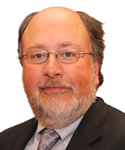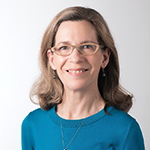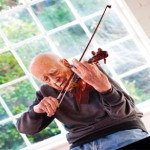This month, the ACR ushers in its new president, David Daikh, MD, PhD. Dr. Daikh serves as the director of the Rheumatology Fellowship Training Program at the University of California, San Francisco (UCSF) and as chief of the Rheumatology Division at the SFVA Medical Center, where he directs the Rheumatology Clinic. He graduated from the Oregon Health & Science University School of Medicine, Portland, in 1991. He completed his residency in 1994 and his fellowship in 1997, both at UCSF. Dr. Daikh’s research has focused on immune mechanisms of rheumatic disease, and he oversees a core laboratory that serves a number of investigators at UCSF.
The Rheumatologist (TR) recently learned more about the organization’s new president and how he envisions the ACR evolving in the coming year.
TR: You, your younger brother and your cousin are all rheumatologists. What attracted you to the field?
Dr. Daikh: Originally, I was going to be a neurologist. I was doing neuroscience research and thought the brain was the last frontier. I was really interested in the mind–body connection. When I got in the wards and started seeing patients, I realized that I wanted to be more general than addressing only one system.
Then I did an elective in rheumatology. I was initially attracted by the Sherlockian aspect of the specialty. I was intrigued by the need to be a detective and use my clinical examination skills to come to a diagnosis. You have to really dig and understand the patient in many aspects. There are so many unknown questions that need to be asked, just as there is so much still to be understood about autoimmunity and autoimmune disease.
I was also attracted to the opportunity to care for patients over long periods of time and greatly impressed by the kindness and collegiality of rheumatologists. Rheumatologists are really kind people, and an interesting group. At my medical school, the first rheumatologists who left lasting impressions were people like Steve Campbell, Jim Rosenbaum and Michael Davies, all of whom were great clinicians and teachers.
TR: You’ve served in various roles at the ACR over the past 15 years. Is being president simply a natural progression, a next step forward?
Dr. Daikh: I wanted to get involved in the field and profession beyond my own institution. As a fellow, I really admired many clinical and scientific leaders in our field who were involved in the ACR. I was involved with the Committee on Rheumatology Training and Workforce Issues for several years and the Scientific Advisory Council of the Rheumatology Research Foundation, and also served as vice president, and then president of the Rheumatology Research Foundation. Remaining engaged with the College has been very enjoyable and rewarding, and I am truly honored to serve as president of the organization.
TR: What do you see as some of the challenges the ACR will face in the coming year?
Dr. Daikh: The ACR faces significant and immediate changes, including the need to provide value, opportunities and support for the younger generation of rheumatologists and allied health professionals. My primary goal is to try to help the organization prepare to manage the changes that are rapidly happening in front of us.
My major focus would be to help support and improve the effectiveness of our boards and committees, and to improve the structure and function of our organization, which would really maximize our ability to innovate and be responsive to the changing environment.
It’s important to know that I really strongly believe that all aspects of our profession—whether clinical care, research or interprofessional care by allied professional colleagues—all are equally important. Cooperation across all these domains is critical to our survival and the growth of our organization. All rheumatology providers are important to moving the field forward and diversity in our organization will only strengthen us.
I look forward to helping the ACR evolve as a dynamic organization that’s responsive to change and able to adapt to the challenges of a new world.
TR: How do you plan on strengthening collaboration among all the healthcare providers in the field?
Dr. Daikh: My professional and volunteer background and experience really span the scope of rheumatology, from patient care and research to education, even advocacy. I strive for balance and work to generate consensus. I don’t bring one viewpoint to the table, and I really value all backgrounds. I’m not somebody who supports just one camp.
TR: What do you want ACR members to know about you as an individual?
Dr. Daikh: My wife, Wendy Manley, practices environmental law in the Bay Area. Our daughter, Clara, is 18. She just graduated from high school.
I tend to have too many interests and hobbies. I studied piano formally and my daughter and I took guitar lessons together for a few years. Music is very important to us. I really love all kinds of music. I listen to live music a lot. In the day, I was a bit of a Grateful Deadhead. I wasn’t a hard-core groupie, but I took in quite a few concerts over the years. When I was a resident, I worked for a group in San Francisco called Rock Med, which provides medical care at rock concerts. I like to work on sports cars and to drive them. I’ve always been an Alpha Romeo enthusiast. I have a couple that I tinker around with. I like woodworking and do all kinds of outdoor activities: bird watching, fishing, hiking and camping. I read a lot.
When given a day to relax, I read, and do something outside.
One thing that’s been rewarding: I work as a doctor at a kids’ camp in the mountains every summer for a week or two.
My perfect day would be spending the early hours fly-fishing in a stream, continuing the day hiking with my family, foraging for mushrooms, bringing them home, cooking them for dinner and drinking some fine wine while listening to music.
TR: When do you have time to do all these things?
Dr. Daikh: That’s the problem in life. There are too many things to do and not enough time.
Carol Patton is a freelance writer based in Las Vegas.



